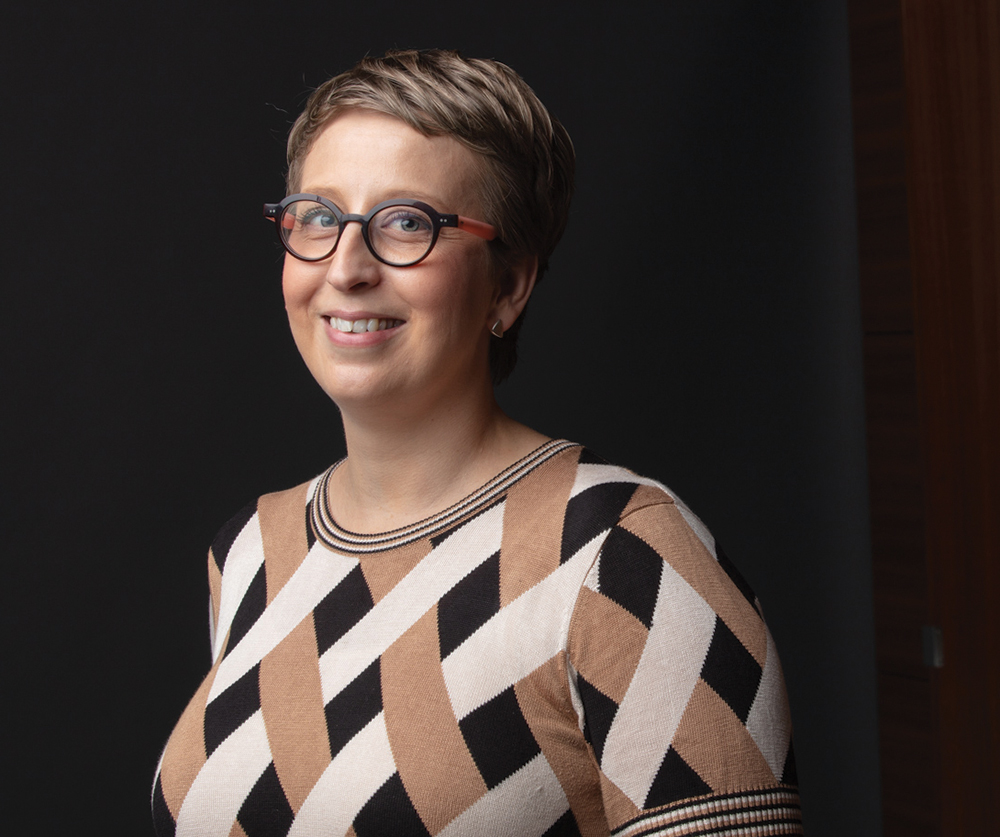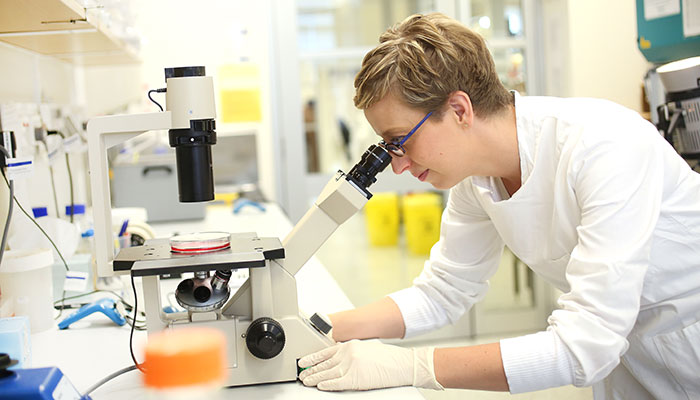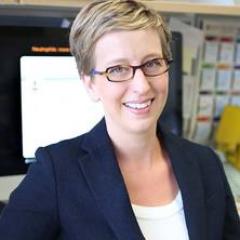Have you ever wished you could see into the future to predict what choices you should make, what degree you should study, and what direction you should take to have an amazing life that you love?
The Institute for Molecular Bioscience's Professor Kate Schroder talks about her highs and lows on the path to success, and what advice she would give herself if she was 16 years old today.
Donate to our Women in Science and Technology fund >>
Dear Kate
I am writing to you, my younger self, from the ripe old age of 41. You might be interested to know what your future has in store. I don’t want to ruin too many surprises, but I will deliberately tell you two things about me.

Firstly, I’m a University Professor in the Biological Sciences. I tell you this not to brag – OK, I’m bragging a little – but to give you confidence to boldly follow your dreams.
I know that you are confident in your abilities but – as a young woman – you are unsure what your place in the world will be. I encourage you to believe in yourself, and back yourself.
Secondly, I am a proud feminist. I know you think that feminism was a movement in the ’70s that brought balance to the genders in society and the workplace. Unfortunately, in 2020 and at a global level, we are yet to see full equality for women in rights, opportunities, and pay.
Until we do so, I will remain an unashamed feminist, and I hope you do too.
You may be surprised to hear this view from me. It’s the mid ’90s for you. The message you’re hearing is that ‘women can do anything’. Your teachers say it, your parents say it, and better still, Madonna and Dolly magazine say it.
But at an unconscious level, you are receiving a different message, from the women in your own life. These wonderful and talented women are not astronauts, mathematicians, business leaders or prime ministers. And the astronauts, mathematicians, business leaders and prime ministers on TV are all men. At some point in your future, the positive message of ‘women can do anything’ will start to jar with your real-life observations.
So, with that in mind, I want to share with you my views on women in science and society, and how these attitudes have shifted dramatically over the years in three major stages. I relate this not to shortcut your learnings but to help you get to the best part – my current position at stage 3 – more quickly.
At 16 years old, you are in stage 1. You do not yet see the barriers women face in society and the workplace. This was initially useful for me – I couldn’t see the barriers, so they didn’t discourage my ambitions. But I encourage you to base ambition on self-confidence, not naivety, and to instead navigate your path with your eyes wide open.
My naivety suffered several blows along my career, and was finally laid to rest at the age of 33, when I started leading a scientific research group. I realised that many of my fabulously talented female colleagues suddenly dropped out of academia, and my peer group became predominantly male. This is still true today, and can be quite isolating.

This led to my first major attitudinal change – to one of frustration about the still-unlevel playing field for women in society and the workplace. This is stage 2. I don’t want to dwell on stage 2 here. I should have moved through this stage faster but didn’t know how.
For me, it took a really tragic event to propel me into my next stage. Like so many women and children in Australia, a female friend of my family was a victim in a truly shocking domestic violence incident. This was the decider for me – I could no longer sit on the sidelines frustrated, but had to take action, however small. I decided to start local, within my own sphere of influence where I might have impact – my workplace at UQ.
This brings me to stage 3, my current and most rewarding stage, which is being an agent for change. When you get to this stage, start small. Start with the women around you – if you can make even a small difference in aiding their careers and opportunities it will be worth it.
In 2020, there are strong winds of change for women in science and society, and in such an environment primed for change, small actions can have large impact. Be brave and take a stand for women.
And never forget that many women have fewer privileges than you – women who experience an additional dose of disadvantage or discrimination because of financial insecurity, ethnicity, sexuality, gender identity, disability, carer or parental responsibilities, domestic violence or many other factors.
I want to finish this letter with some well-intentioned words of advice:
1. Remember the lessons your parents taught you
They have always served me well – be kind, be fair, be curious, and always act with integrity.
2. Nurture your relationships
During your life you will love and be loved by many wonderful people. A career in science is enormously rewarding and satisfying, but it’s the fabulous people in your life that will bring you true happiness. Also, get a dog or two, preferably mini-schnauzers. They are so much fun!
3. Be yourself and be true to yourself
You know your mind and your potential, but be aware that societal expectations can have insidious effects on women’s careers and self-worth. Make conscious decisions about your career and family, and live your life your own way. This should be easy for you, as you are really quite stubborn!
4. Science is a wonderful career
It’s unparalleled for all the things you value – intellectual freedom, the thrill and challenge of new ideas, and the enormous rush that comes with discovery.
At all times nurture your love of science, as it is your most precious asset as a scientist.
Stay curious and be open to new interests and opportunities.
I know that you are very goal-oriented. This is one of your strengths, as it means you will achieve a lot.
But don’t forget to enjoy the ride – the journey of a science career is the best part!
Love,
Kate
P.S. Ditch your Ancient History elective at school as you will barely pass and then forget everything you learned. Take Biology instead – it’s fascinating!

